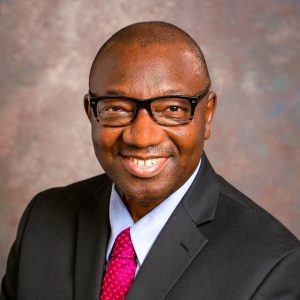Master of Social Work

The University of Delaware’s Master of Social Work (MSW) program, housed in the College of Education and Human Development (CEHD), prepares graduates to accept positions as social workers. Social workers support individuals and families through a wide range of life changes or challenges, including adoption, divorce, aging, terminal illness, loss of housing or employment, mental health, substance use and more.
Through research-informed coursework taught by faculty experts, community-engaged practicum experiences and specialization areas that meet community needs, the MSW prepares students to address the social problems affecting our global community—regardless of race, ethnicity, disability, religion, gender and/or sexual orientation. The program also teaches students how to apply social work ethics and values in promoting human rights, social justice and anti-oppressive practices.
With 16-month, two-year and three-year pathways to degree completion, students of the program can customize their timeline toward graduation. Students who begin the program with at least two years of professional experience in human services organizations are eligible to pursue a specialized pathway.
Complete the online UD Graduate Admissions application form. Requirements specific to this program include:
- A bachelor’s degree in any field of study earned from a college or university accredited by a recognized regional accrediting agency.*
- Official transcripts from each institution where college-level academic work was completed.
- A Grade Point Average (GPA) of 3.0 or higher on a scale of 4.0 in your last 60 hours of undergraduate coursework or two full academic years of study (plus any completed graduate course).
- Two letters of reference with at least one from a former or current professor when available.
- A personal statement essay that demonstrates alignment between the candidate’s statement of objectives and interest in social work values. The essay should discuss the candidate’s personal and professional backgrounds, goals, mentors and reasons for pursuing social work education.
- Resume/CV (maximum two pages)
- Potential face-to-face interview
- For international applicants whose first language is not English, a Test of English as a Foreign Language (TOEFL) iBT score of 100 or a score of 7.0 on the International English Language Testing System (IELTS) is required.
- GRE scores are not required.
*Applicants for Advanced Standing status will be required to have earned a bachelor’s degree in social work. Advanced standing is also available to applicants with a Canadian Association for Social Work Education (CASWE)-accredited bachelor’s of social work degree (recognized through an MOU with the Council on Social Work Education and CASWE) and internationally earned ISWDRES-evaluated degree comparable to a bachelor’s of social work.
Fall Admissions (Part-time or Full-time)
- January 15 – Priority consideration
- March 15 – Deadline to apply
Spring Admissions (Part-time)
- December 15 – Priority consideration
- January 15 – Deadline to apply
The MSW Program currently accepts applicants each fall and spring semester, with FT and PT admits during the fall semester, and PT admits during the spring semester. The MSW Program will continue to process completed applications received one week after the deadline for our program, on a first-come, first-served basis, with no guarantees for admission consideration.
If the deadline passes and applications are not received or all required application materials are not received (e.g., transcripts) then the application will not be reviewed for that application cycle. To apply for admission consideration for a future term, the applicants must submit a new application, a new application fee, and updated support documents.
This program offers three pathways to graduation, allowing students to tailor the program to their schedule, previous experience and career goals:
Advanced Standing (Fall admission)
- Designed for students with a bachelor’s degree in social work (BSW) from a program accredited by Council on Social Work Education, earned within the last ten years
- Students will complete 30 total credits in 16 months (3 semesters):
- 15 credits of required courses
- 9 credits of electives
- 6 credits of practicum education
Regular Full-Time (Fall admission)
- Designed for students that do not hold a BSW degree
- Students will complete 60 total credits in 2 years (4 semesters):
- 39 credits of required courses
- 9 credits of electives
- 12 credits of practicum education (internship)
Regular Part-Time (Fall or Spring admission)
- Designed for students that do not hold a BSW degree
- Students will complete 60 total credits in 2 to 4 years (8 semesters):
- 39 credits of required courses
- 9 credits of electives
- 12 credits of practicum education (internship)
- Students who start in Spring semester must complete summer coursework to stay on track for degree completion
Will I have a major or specialization in the program?
- The MSW Degree currently includes three optional specializations:
- Children and Families
- Mental Health and Substance Use
- Gerontology/Older Adults
Do I have to select an area of specialization?
- No, you do not have to specialize. You may complete the MSW degree and select any eligible electives that interest you, instead of electives linked to a specific specialization.
Is there a Practicum/Internship requirement and how does it work?
- Yes, there is a practicum/internship requirement consistent with CSWE standards.
- Full-time students are expected to participate in practicum/internship each semester, and each year, concurrently with practice classes.
- Generalist students will have two years of internship, while Advanced Standing students will have one year of internship – starting in their first semester of the program.
- Part-time students are expected to participate in practicum/internship after their first academic year.
- Information about the practicum experience can be found by speaking to Ms. LeAnn DiBenedetto, our Director of Practicum at: ldiben@udel.edu. The Practicum Team is committed to creating a very strong fit between student interests and their actual practicum placements.
Do students have to find their own internship placements?
- We do that with consideration of each student’s interests.
Can I complete my Practicum/Internship with my current employer?
- There are specific requirements to be considered to apply for Employer-based Practicums (EBPs).
- Each application is reviewed and considered alongside program and CSWE accreditation guidelines. A successfully completed application does not guarantee an Employer-Based Practicum assignment. A high-quality agency/site setting does not guarantee an Employer-Based Practicum assignment.
- Feasibility for an Employer-Based Practicum is based on a combination of agency/site criteria and resources, and on MSW program criteria and resources during those specific semesters that a student is in at that time.
Full-time graduate students may qualify for financial aid, assistantships and scholarships to help offset the cost of tuition, housing and other expenses. For more information about tuition and financial aid, visit CEHD’s Graduate Tuition and Financial Aid webpage.
Can I get financial help?
- The majority of students at the University of Delaware are eligible to apply to and receive financial aid or loans through the Federal Student Aid application (FAFSA).
- To explore Graduate Assistantships, Fellowships, and Scholarships, visit the Graduate College Funding Opportunities, which sometimes includes tuition assistance.
- To view campus employment opportunities visit the Student Employment website.
Note: Assistantships are not awarded pre-semester as part of any financial award package.
UD’s MSW program has attained pre-candidacy status for accreditation by the Council on Social Work Education’s (CSWE) Board of Accreditation (BOA). Students who are admitted to the program in the Fall of 2024 (or later) will be retroactively recognized as graduates from a CSWE-BOA accredited program when the MSW attains full accreditation, expected in 2026. Accreditation provides reasonable assurance about the quality of the program and the competence of students graduating from the program.
Pre-candidacy for a master’s social work program by the BOA indicates that it submitted an application to be reviewed for candidacy and received approval of its Benchmark 1 from CSWE accreditation staff to move forward for a candidacy review within 1-year. Students that are admitted to pre-candidate programs in the fall (or later) of the academic year in which the program is granted candidacy status will be retroactively recognized as graduates from a CSWE-BOA accredited program.
Pre-candidacy applies to all program options, which includes locations and delivery methods.
Program Faculty & Staff
“I am a very strong believer in the use of research to inform practice, and so, I always crave opportunities where I can see research informing practice and practice informing research as well. The University of Delaware, as a Research I university, actually provides an opportunity to expand thinking, and I think in social work, that’s what we need.”
-Ohiro Oni-Eseleh, Assistant Professor, M.S.W. Program
Sample Curriculums
First Year (Generalist Year)
Semester 1 (15 credits)
- SWRK 600: Social Welfare Policy I
- SWRK 605: Human Behavior in the Social Environment I
- SWRK 610: Direct Social Work Practice I
- SWRK 612: Racism, Diversity, Oppression and Privilege
- SWRK 650: Practicum Education I
Semester 2 (15 credits)
- SWRK 601: Social Welfare Policy II
- SWRK 606: Human Behavior in the Social Environment II
- SWRK 611: Direct Social Work Practice II
- SWRK 614: Social Work Research Methods I
- SWRK 651: Practicum Education II
Second Year (Advanced Year)
Semester 3 (15 Credits)
- SWRK 615: Social Work Research Methods II
- SWRK 617: Clinical Assessment & Diagnosis
- SWRK 618: Advanced Social Work Practice with Individual and Families
- Specialized Elective
- SWRK 652: Practicum III
Semester 4 (15 Credits)
- SWRK 616: Organizational Context and Service Delivery
- SWRK 619: Advanced Social Work Practice with Groups
- Specialized Elective
- Specialized Elective
- SWRK 652: Practicum IV
Generalist Years
Semester 1 (6 credits)
- SWRK 600: Social Welfare Policy I
- SWRK 605: Human Behavior in the Social Environment I
Semester 2 (6 credits)
- SWRK 601: Social Welfare Policy II
- SWRK 606: Human Behavior in the Social Environment II
Semester 3 (9 Credits)
- SWRK 610: Direct Social Work Practice I
- SWRK 612: Racism, Diversity, Oppression and Privilege
- SWRK 650: Practicum Education I
Semester 4 (9 Credits)
- SWRK 611: Direct Social Work Practice II
- SWRK 614: Social Work Research Methods I
- SWRK 651: Practicum Education II
Advanced Years
Semester 5 (6 Credits)
- SWRK 617: Clinical Assessment & Diagnosis
- SWRK 618: Advanced Social Work Practice with Individual and Families
Semester 6 (6 Credits)
- SWRK 616: Organizational Context and Service Delivery
- SWRK 619: Advanced Social Work Practice with Groups
Semester 7 (9 Credits)
- SWRK 615: Social Work Research Methods II
- Specialized Elective
- SWRK 652: Practicum III
Semester 7 (9 Credits)
- Specialized Elective
- Specialized Elective
- SWRK 652: Practicum IV
Semester 1 (12 credits)
- SWRK 615: Social Work Research Methods II
- SWRK 617: Clinical Assessment & Diagnosis
- SWRK 618: Advanced Social Work Practice with Individuals and Families
- SWRK 652: Practicum III
Semester 2 (12 credits)
- SWRK 616: Organizational Context and Service Delivery
- SWRK 619: Advanced Social Work Practice with Groups
- Specialized Elective
- SWRK 653: Practicum IV
Semester 3 (6 credits)
- Specialized Elective
- Specialized Elective
FAQs
No, the MSW program does not have an online program. This program is in-person on the Newark campus.
Fees are waived for applicants that meet certain requirements. If none of the listed requirements apply, contact Dr. Raphael Travis (drtravis@udel) with a request and your reasons for the request.
Yes, the program is on track for accreditation and candidacy status according to a timeline that allows students to apply for licensure in Delaware and most other states.
What is considered full-time study?
Fifteen (15) academic credit hours during fall and spring semesters is considered full-time at the graduate level for the MSW program.
If I work, can I attend part-time?
Yes, a part-time program is an available. However, part-time students may take up to nine (9) credits during some semesters. We strongly recommend that students who are working full-time attend the program on a part-time basis and carefully consider their workload.
I work full-time and I want to go to school full-time. Can I?
Yes, you may participate in the full-time program. However, we do not recommend this option for most students who also hold a full-time professional position. Please read the Practicum Handbook to learn how working full-time may impact your ability to complete required practicum hours. To learn more about which path may be right for you, contact Dr. Raphael Travis (drtravis@udel.edu).
You may apply to and complete the MSW program if you live in a different state or country. However, this program is administered in-person on the Newark campus. See application requirements above for more details.
No, UD does not require a background check for applicants to be admitted to the MSW program. However, practicum and internship agencies often require background checks to ensure that students can work with the agency’s clients (such as children or youth).
The MSW program takes a holistic approach to the admissions process and reviews several factors to determine which applicants are most likely to succeed in graduate social work education. We examine:
- The content and clarity of the applicant’s personal statement according to application prompts.
- Alignment of educational and career goals with the social work profession.
- Alignment of the MSW program with the applicants’ professional interests.
- Consideration of employment and personal responsibilities workload.
- Previous higher education GPAs.
- Work and volunteer history.
- The MSW program may request an interview in some instances.
The MSW program will review formal requests for deferment. Decisions are based on program capacity and University recommendations.
Without an formal request for deferment, an applicant who is unable to start the MSW program in the semester in which they are accepted must re-apply during the next application cycle.
The MSW program adheres to the UD Graduate College Transfer Credit policy. Please review all applicable details for transfer credit.
- A maximum of 9 credit hours can be transferred.
- Non-social work graduate courses can only be reviewed for elective credit.
- Only accredited social work courses can be reviewed for non-elective/core course credit.
Students can take the Master’s Social Worker licensing exam (LMSW) prior to or after their official graduation with an MSW degree. Graduates may take the Clinical Social Worker licensing exam (LCSW) after the required number of post-graduate supervised hours in a clinical setting.
Graduation from the MSW program ensures that students have successfully completed the educational requirements established for social work practice. Graduates demonstrate a strong understanding of core competencies in policy, research, practice, human behavior and field education. Internship and practicum experiences prepare them for professional entry into the field.
However, meeting degree requirements is not the same as preparing for the licensure exam. The LMSW exam, created and administered by the Association of Social Work Boards (ASWB), is a separate professional assessment with its own format, question style and emphasis. While the content draws from MSW graduate programs, the exam measures how you apply that knowledge to the specific test items and scenarios presented in a multiple-choice format.
For this reason, we strongly encourage graduates of the MSW program who are seeking licensure to study specifically for the licensure exam using available resources from the ASWB and their intended state of licensure (e.g., Delaware and the Delaware Board of Social Work Examiners).
Yes, an applicant may enroll for non-credit courses or programs. Admission is contingent upon successful registration for a non-credit courses. Applicants may request permission to register for non-credit courses through UD’s Office of Professional and Continuing Studies.








